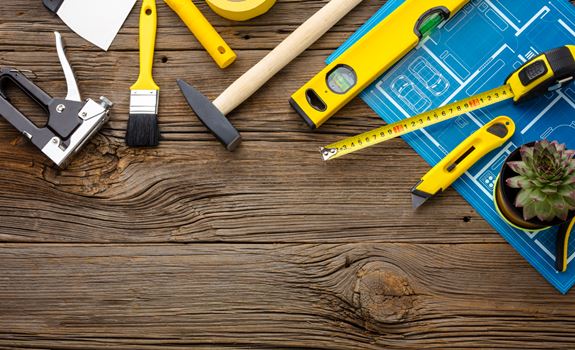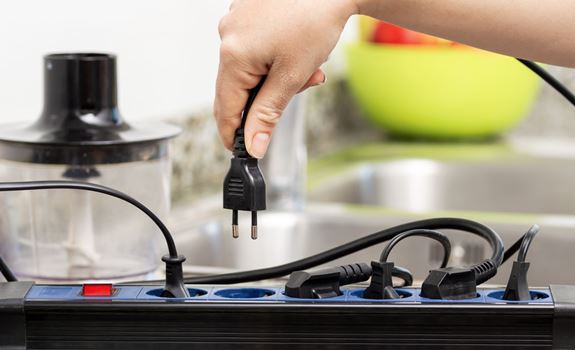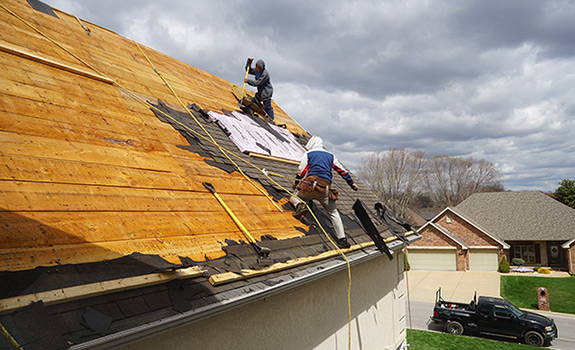According to some analysts’ predictions on Forbes and Bankrate, 2023 might see house prices slowly lowering, but also house sales. Predictions are that home sales could drop by 6.8% compared to 2022.
This isn’t good news for anyone wanting a quick house sale, but some things can be done to speed up the process of finding a buyer. The need for preparing a house for a quick sale is vital in a declining market. The reason why? Because buyers are savvier now, plus they can take their time being choosy.
Due to a smaller housing inventory during Covid, buyers were willing to pay over the odds to get the home they wanted. While house prices are still high, buyer demand has waned with inflation being part of the problem.
Buyers are not in a rush to pay above market value for a home, and they can spend time inspecting property thoroughly. While this guide is intended to show what buyers should look for, sellers would be wise to consider some of the points made here too.

What are the 9 essential things to do before buying a house?
There are plenty of guides on the net to help selling your home quickly. One popular tip is to find cash house buyers who can snap up homes fast with no chain involved and no legal fees to worry about.
But, what if you’re the person buying, what should you be looking for? Here are 9 vital things to look for when purchasing a home.
#1 Check the state of the HVAC system
Millions of homes in the US have HVAC systems, and in many regions these are invaluable. However, they need to be maintained to avoid expensive repairs. If the seller has maintenance records then this is a good indication that the system has been cared for, but ask about the age too. Ideally, the system will be considerably less than 10 years old.
If you need to repair an HVAC system it costs less than $100 but it could run to thousands. A replacement system on average costs $7,500. When you look at the home take into account loft insulation too. Proper insulation extends the life of HVAC systems by not forcing them to work too hard.
#2 Check out the neighborhood
The buyer’s mantra regarding location being the most important aspect of house buying is still true. Crime, schooling, and noise concerns should all be checked out.
Online tools such as SpotCrime can help you to ascertain if your new neighborhood is going to be safe or has a history of crime.
You should also check out the local infrastructure. Public transport, restaurants, parks and recreational areas, plus if you have children you should see how the local school is performing.
Additionally, you may want to do some research into how long comparable houses in the neighborhood stay on the market, and how their value has grown over time. After all, there is a good chance that one day you will be the seller and not the buyer.
#3 Ask about the neighbors
Some questions have to be answered truthfully on the Real Estate Transfer Disclosure Statement, and one is about noise problems and nuisances in the neighborhood.
If there are any ongoing or historical disputes with the neighbors these may have to be disclosed also. Remember, you’re the ones who have to live next door if you buy. It’s better to find out if you have a frat house next to you before you buy.
#4 Inspect the roofing
Is the roofing in good condition, how old is it, and is it under warranty still? Roofing warranties range in length, but they can stretch to 10 years or even up to 25 years in some cases.
Roof repairs and replacements can be very costly. This is an important part of the house structure that should be looked at, or you may need to learn what to do for roof replacement sooner than you expected.
#5 Look for signs of dampness and mold
Water damage can be easy to spot in some circumstances, but it can cost considerable amounts to fix when you consider that you will need to repair the cause of the problem too.
Mold and dampness can also affect health in adults and children. The Institute of Medicine discovered there was enough evidence to link mold in homes with ailments concerning the upper respiratory tract in people that were in good health. Mold can also exacerbate asthma symptoms.
#6 Is the home structurally sound?
Some signs such as cracks may not mean anything serious, but they could point to structural problems. Cracks in the foundations, uneven flooring, and sagging roofs, are major signs of structural problems.
#7 Small repairs that have been overlooked
A definite tip for sellers here is to carry out basic repairs. If you spot minor problems such as dripping taps, or small leaks, you would be wise to consider that there may be much larger problems elsewhere in the home. Failure to carry out basic maintenance is a red flag here.
The cost of carrying out extensive repairs may not be feasible for some sellers. In this situation using house buyers that are trusted might be a wiser option. A property investor will fix and flip a home, and be less concerned about such repairs.
#8 Does it have a HERS rating?
This index system was designed to evaluate the energy efficiency of new and existing homes. As a buyer, you should be considering what your energy bills will be if you make a property purchase.
So far over 3 million homes have been given a HERS Index score. If the home you are looking at has one, you will be able to judge how energy efficient it is.
#9 Signs of pests
As a seller, you need to disclose whether you have a termite infestation for instance. Pests are one of many things that sellers must disclose.
As the buyer, you will no doubt hire a property inspector, and they will also look for signs of pests. If this gets missed, it could be a serious headache later on.
Summary
There are plenty of other aspects of house buying to look at. The first thing you will notice is the curb appeal, and this can be an early warning sign that a home has been neglected. Many things such as structural problems can be difficult to spot. But, property inspectors are trained in this area and experienced in spotting signs of problems.
If your seller fails to disclose anything they are legally obliged to do so, you can have some recourse later on. Ideally, the courts will not be necessary if you inspect a home thoroughly, and take your time.
Published in: Home advice | Author: Lynn










